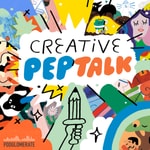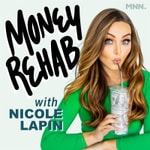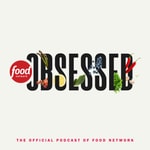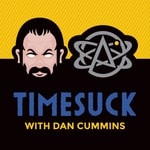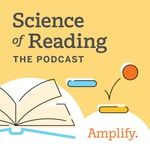Therapy in a Nutshell – Details, episodes & analysis
Podcast details
Technical and general information from the podcast's RSS feed.
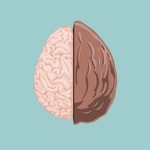
Therapy in a Nutshell
Therapy in a Nutshell -Emma McAdam
Frequency: 1 episode/8d. Total Eps: 247

Recent rankings
Latest chart positions across Apple Podcasts and Spotify rankings.
Apple Podcasts
🇨🇦 Canada - mentalHealth
27/07/2025#42🇺🇸 USA - mentalHealth
27/07/2025#72🇨🇦 Canada - mentalHealth
26/07/2025#44🇺🇸 USA - mentalHealth
26/07/2025#70🇨🇦 Canada - mentalHealth
25/07/2025#50🇺🇸 USA - mentalHealth
25/07/2025#74🇨🇦 Canada - mentalHealth
24/07/2025#53🇺🇸 USA - mentalHealth
24/07/2025#78🇨🇦 Canada - mentalHealth
23/07/2025#49🇺🇸 USA - mentalHealth
23/07/2025#71
Spotify
No recent rankings available
Shared links between episodes and podcasts
Links found in episode descriptions and other podcasts that share them.
See allRSS feed quality and score
Technical evaluation of the podcast's RSS feed quality and structure.
See allScore global : 63%
Publication history
Monthly episode publishing history over the past years.
Stop Struggling with Insomnia with Dr Martin Reed
Episode 149
jeudi 22 août 2024 • Duration 41:52
In this interview, psychotherapist and insomnia coach Martin Reed discusses the common causes and solutions for insomnia. Insomnia often starts with a single night of disrupted sleep and is exacerbated by our responses to it. Reed highlights that insomnia is common and manageable by understanding its mechanics and practicing less effortful responses to wakefulness. His free email series provides further education and strategies for improving sleep without the common pitfalls that many insomnia sufferers experience.
Looking for affordable online counseling? My sponsor, BetterHelp, connects you to a licensed professional from the comfort of your own home. Try it now for 10% off your first month: https://betterhelp.com/therapyinanutshell
Learn more in one of my in-depth mental health courses: https://courses.therapyinanutshell.com
Support my mission on Patreon: https://www.patreon.com/therapyinanutshell
Sign up for my newsletter: https://www.therapyinanutshell.com
Check out my favorite self-help books: https://kit.co/TherapyinaNutshell/best-self-help-books
Therapy in a Nutshell and the information provided by Emma McAdam are solely intended for informational and entertainment purposes and are not a substitute for advice, diagnosis, or treatment regarding medical or mental health conditions. Although Emma McAdam is a licensed marriage and family therapist, the views expressed on this site or any related content should not be taken for medical or psychiatric advice. Always consult your physician before making any decisions related to your physical or mental health. In therapy I use a combination of Acceptance and Commitment Therapy, Systems Theory, positive psychology, and a bio-psycho-social approach to treating mental illness and other challenges we all face in life. The ideas from my videos are frequently adapted from multiple sources. Many of them come from Acceptance and Commitment Therapy, especially the work of Steven Hayes, Jason Luoma, and Russ Harris. The sections on stress and the mind-body connection derive from the work of Stephen Porges (the Polyvagal theory), Peter Levine (Somatic Experiencing) Francine Shapiro (EMDR), and Bessel Van Der Kolk. I also rely heavily on the work of the Arbinger Institute for my overall understanding of our ability to choose our life's direction.
And deeper than all of that, the Gospel of Jesus Christ orients my personal worldview and sense of security, peace, hope, and love https://www.churchofjesuschrist.org/comeuntochrist/believe
If you are in crisis, please contact the National Suicide Prevention Hotline at https://suicidepreventionlifeline.org or 1-800-273-TALK (8255) or your local emergency services.
Copyright Therapy in a Nutshell, LLC
How to Forgive
Episode 152
jeudi 15 août 2024 • Duration 21:28
Ready to transform your mental health today? Get all 8 of Emma’s courses plus live Q&A here: https://courses.therapyinanutshell.com/membership
Forgiveness can be a really challenging subject. On the one hand, forgiving someone can be a powerful path to emotional freedom, but on the other, the word forgiveness is often used in a way that is hurtful or harmful for victims of abuse. In this podcast, I hope to take a nuanced and thoughtful approach to the ways that forgiveness can be helpful for those who have experienced abuse or trauma, but also to really clarify for those encouraging others to forgive how the concept can be misused, mis-timed, or mis-understood.
So let’s talk about what that healing process might look like. And how forgiveness might be a part of that. And if it is, how to forgive.
Looking for affordable online counseling? My sponsor, BetterHelp, connects you to a licensed professional from the comfort of your own home. Try it now for 10% off your first month: https://betterhelp.com/therapyinanutshell
Learn more in one of my in-depth mental health courses: https://courses.therapyinanutshell.com
Support my mission on Patreon: https://www.patreon.com/therapyinanutshell
Sign up for my newsletter: https://www.therapyinanutshell.com
Check out my favorite self-help books: https://kit.co/TherapyinaNutshell/best-self-help-books
Therapy in a Nutshell and the information provided by Emma McAdam are solely intended for informational and entertainment purposes and are not a substitute for advice, diagnosis, or treatment regarding medical or mental health conditions. Although Emma McAdam is a licensed marriage and family therapist, the views expressed on this site or any related content should not be taken for medical or psychiatric advice. Always consult your physician before making any decisions related to your physical or mental health. In therapy I use a combination of Acceptance and Commitment Therapy, Systems Theory, positive psychology, and a bio-psycho-social approach to treating mental illness and other challenges we all face in life. The ideas from my videos are frequently adapted from multiple sources. Many of them come from Acceptance and Commitment Therapy, especially the work of Steven Hayes, Jason Luoma, and Russ Harris. The sections on stress and the mind-body connection derive from the work of Stephen Porges (the Polyvagal theory), Peter Levine (Somatic Experiencing) Francine Shapiro (EMDR), and Bessel Van Der Kolk. I also rely heavily on the work of the Arbinger Institute for my overall understanding of our ability to choose our life's direction.
And deeper than all of that, the Gospel of Jesus Christ orients my personal worldview and sense of security, peace, hope, and love https://www.churchofjesuschrist.org/comeuntochrist/believe
If you are in crisis, please contact the National Suicide Prevention Hotline at https://suicidepreventionlifeline.org or 1-800-273-TALK (8255) or your local emergency services.
Copyright Therapy in a Nutshell, LLC
Insomnia- How to Fall Asleep When your Brain Won't Shut Up!
Episode 155
jeudi 20 juin 2024 • Duration 12:31
Do you want to learn How to Process Emotions and improve your Mental Health? Sign up for a Therapy in a Nutshell Membership, you'll get access to all of Emma’s courses, workbooks, and a Live Q and A with 100’s of exclusive videos: https://courses.therapyinanutshell.com/membership
If you are lying in bed trying to go to sleep, and find your mind racing, feeling anxious, what's the next best step to stop the anxiety cycle?
You all know that feeling. I’ve been there, You’ve got a big day ahead, or you’ve had a long day behind you, you really need to sleep, you’re soooo tired, but when you finally lay down, your mind starts running, you worry about everything, or you can’t stop thinking about all the mistakes you made throughout the day. You can feel your stress levels rise, and despite your best efforts, you can’t sleep. And that makes you more anxious, which perpetuates the cycle, and on it goes. You desperately want to sleep, but your brain won’t shut up. In this podcast, you’ll learn why your brain doesn’t trust you to process these thoughts during the day. And, there is something you can do about this. So, let’s talk about the science behind why your brain gets stuck doing this, and 3 things you can do to escape that cycle.
Looking for affordable online counseling? My sponsor, BetterHelp, connects you to a licensed professional from the comfort of your own home. Try it now for 10% off your first month: https://betterhelp.com/therapyinanutshell
Learn more in one of my in-depth mental health courses: https://courses.therapyinanutshell.com
Support my mission on Patreon: https://www.patreon.com/therapyinanutshell
Sign up for my newsletter: https://www.therapyinanutshell.com
Check out my favorite self-help books: https://kit.co/TherapyinaNutshell/best-self-help-books
Therapy in a Nutshell and the information provided by Emma McAdam are solely intended for informational and entertainment purposes and are not a substitute for advice, diagnosis, or treatment regarding medical or mental health conditions. Although Emma McAdam is a licensed marriage and family therapist, the views expressed on this site or any related content should not be taken for medical or psychiatric advice. Always consult your physician before making any decisions related to your physical or mental health. In therapy I use a combination of Acceptance and Commitment Therapy, Systems Theory, positive psychology, and a bio-psycho-social approach to treating mental illness and other challenges we all face in life. The ideas from my videos are frequently adapted from multiple sources. Many of them come from Acceptance and Commitment Therapy, especially the work of Steven Hayes, Jason Luoma, and Russ Harris. The sections on stress and the mind-body connection derive from the work of Stephen Porges (the Polyvagal theory), Peter Levine (Somatic Experiencing) Francine Shapiro (EMDR), and Bessel Van Der Kolk. I also rely heavily on the work of the Arbinger Institute for my overall understanding of our ability to choose our life's direction.
And deeper than all of that, the Gospel of Jesus Christ orients my personal worldview and sense of security, peace, hope, and love https://www.churchofjesuschrist.org/comeuntochrist/believe
If you are in crisis, please contact the National Suicide Prevention Hotline at https://suicidepreventionlifeline.org or 1-800-273-TALK (8255) or your local emergency services.
Copyright Therapy in a Nutshell, LLC
4 Ways to Heal From Your Past (Traumatic Memories Part 2)
Season 3 · Episode 31
jeudi 6 octobre 2022 • Duration 15:11
Check out my free course, Grounding Skills for Anxiety, Stress and PTSD https://courses.therapyinanutshell.com/grounding-skills-for-anxiety-stress-and-ptsd
Here’s the thing about trauma, even though the event happened in the past- we work with trauma in the present moment. It causes pain in the present moment, it changes your nervous system in the present moment. The hurt isn’t just “in the past” it’s right here, in your body and emotions right now. In the last video we talked about 4 ways traumatic memories differ from regular memories. In this video we’ll cover 4 ways you can work with those memories in the present moment so they don’t bother you so much. When traumatic memories are integrated and consolidated, real healing can happen. This might look like someone being able to say “This terrible thing happened, but right now, I am safe”. And when they remember the event, they can calm their mind and body in the present moment. The memory becomes a memory instead of a flashback where they re-experience a terrible event as if it’s happening again. As we talked about in the last video traumatic memories differ from regular memories in 4 ways: They don’t naturally soften over time, they stay intense and vivid Traumatic memories are often sensory- it FEELS like the event in sights, sounds, smells. The passage of time is distorted-it feels like you’re living it over again in the present They are often fragmented, they don’t follow a sequential order, some information may be missing or blocked
Looking for affordable online counseling? My sponsor, BetterHelp, connects you to a licensed professional from the comfort of your own home. Try it now for 10% off your first month: https://betterhelp.com/therapyinanutshell
Learn more in one of my in-depth mental health courses: https://courses.therapyinanutshell.com/?utm_medium=YTDescription&utm_source=podcast
Support my mission on Patreon: https://www.patreon.com/therapyinanutshell
Sign up for my newsletter: https://www.therapyinanutshell.com?utm_medium=YTDescription&utm_source=podcast
Check out my favorite self-help books: https://kit.co/TherapyinaNutshell/best-self-help-books
Therapy in a Nutshell and the information provided by Emma McAdam are solely intended for informational and entertainment purposes and are not a substitute for advice, diagnosis, or treatment regarding medical or mental health conditions. Although Emma McAdam is a licensed marriage and family therapist, the views expressed on this site or any related content should not be taken for medical or psychiatric advice. Always consult your physician before making any decisions related to your physical or mental health. In therapy I use a combination of Acceptance and Commitment Therapy, Systems Theory, positive psychology, and a bio-psycho-social approach to treating mental illness and other challenges we all face in life. The ideas from my videos are frequently adapted from multiple sources. Many of them come from Acceptance and Commitment Therapy, especially the work of Steven Hayes, Jason Luoma, and Russ Harris. The sections on stress and the mind-body connection derive from the work of Stephen Porges (the Polyvagal theory), Peter Levine (Somatic Experiencing) Francine Shapiro (EMDR), and Bessel Van Der Kolk. I also rely heavily on the work of the Arbinger institute for my overall understanding of our ability to choose our life's direction.
And deeper than all of that, the Gospel of Jesus Christ orients my personal worldview and sense of security, peace, hope, and love https://www.churchofjesuschrist.org/comeuntochrist/believe
If you are in crisis, please contact the National Suicide Prevention Hotline at https://suicidepreventionlifeline.org or 1-800-273-TALK (8255) or your local emergency services.
Copyright Therapy in a Nutshell, LLC
5 Foods that Naturally Decrease Cortisol (The Stress Hormone)
Season 3 · Episode 30
lundi 3 octobre 2022 • Duration 08:55
Check out my Grounding Skills Course here: https://courses.therapyinanutshell.com/grounding-skills-for-anxiety-stress-and-ptsd
Managing stress involves a lot of things, a healthy work life balance, good boundaries, sleep, exercise, but changing what you eat can also have a big impact on your stress levels, and that’s because what you eat impacts cortisol levels. Cortisol is known as the stress hormone, it is part of the activating energizing response in your body, and it triggers the fight or flight response. But it plays a lot of other important roles in your body too. Cortisol helps regulate everything from sleep cycles and inflammation, to blood pressure and blood sugar levels. Cortisol is released by the adrenal gland in response to a physical threat (like an injury) or a mental threat (like a deadline). Cortisol isn't inherently bad, it’s helpful in the short term, but being exposed to it for too long can lead to a chronic stress response which includes more anxiety, depression, fatigue, inflammation, weight gain, higher blood pressure, a decreased immune system, higher chance of diabetes and heart disease. So you can see how decreasing cortisol can have a big impact on physical and mental health. When researchers explored how diet impacts cortisol, they found that people on a traditional American diet (high fat, sugar, and carbs) had much higher cortisol levels than people who were eating more fruits, vegetables, whole grains, and polyunsaturated fats. An anti-inflammatory diet can counteract the impacts of cortisol. Inflammation is essentially a low level stress response in the body, your immune system sends out macrophages and cytokines to kill off pathogens, but the side effect is that it also damages healthy tissue and leads to chronic stress on the body. Inflammation also increases intestinal permeability, aka leaky gut, which allows bacteria into the bloodstream and triggers even more inflammation to counter it. When we eat foods that cause inflammation, we essentially trigger that stress response in the body, but you can choose foods that lower cortisol, inflammation and the stress response. As we go through this list of foods, you may recognize it as having a lot in common with the Mediterranean diet. The Mediterranean diet has been found to be quite effective at decreasing inflammation and it’s been shown to improve mental health.
Looking for affordable online counseling? My sponsor, BetterHelp, connects you to a licensed professional from the comfort of your own home. Try it now for 10% off your first month: https://betterhelp.com/therapyinanuts...
Support my mission on Patreon: https://www.patreon.com/therapyinanut...
Sign up for my newsletter: https://www.therapyinanutshell.com?utm_medium=YTDescription&utm_source=YouTube
Check out my favorite self-help books: https://kit.co/TherapyinaNutshell/bes...
Therapy in a Nutshell and the information provided by Emma McAdam are solely intended for informational and entertainment purposes and are not a substitute for advice, diagnosis, or treatment regarding medical or mental health conditions. Although Emma McAdam is a licensed marriage and family therapist, the views expressed on this site or any related content should not be taken for medical or psychiatric advice. Always consult your physician before making any decisions related to your physical or mental health. In therapy I use a combination of Acceptance and Commitment Therapy, Systems Theory, positive psychology, and a bio-psycho-social approach to treating mental illness and other challenges we all face in life. The ideas from my videos are frequently adapted from multiple sources. Many of them come from Acceptance and Commitment Therapy, especially the work of Steven Hayes, Jason Luoma, and Russ Harris. The sections on stress and the mind-body connection derive from the work of Stephen Porges (the Polyvagal theory), Peter Levine (Somatic Experiencing) Francine Shapiro (EMDR), and Bessel Van Der Kolk. I also rely heavily on the work of the Arbinger institute for my overall understanding of our ability to choose our life's direction.
And deeper than all of that, the Gospel of Jesus Christ orients my personal worldview and sense of security, peace, hope, and love https://www.churchofjesuschrist.org/c...
If you are in crisis, please contact the National Suicide Prevention Hotline at https://suicidepreventionlifeline.org/ or 1-800-273-TALK (8255) or your local emergency services.
Copyright Therapy in a Nutshell, LLC
4 Ways Trauma/PTSD Distorts Memories
Season 3 · Episode 29
jeudi 29 septembre 2022 • Duration 11:00
Check out my course, Change Your Brain: 10 Natural, Research-backed Ways to Improve Mental Health https://courses.therapyinanutshell.com/change-your-brain
When you have a traumatic experience, your brain physically changes in structure and electrical activity. And one of the big symptoms that we see with Trauma and PTSD is changes in memory. There are 4 ways that traumatic memories differ from regular memories. In this video we’ll talk about how PTSD and trauma change your memories and 3 things you can do to soften or treat traumatic memories and their painful symptoms. Normal memories change every time you retrieve them, retell them and store them. That’s one reason why two people who experience the same event might remember it very differently. Every time a non-traumatic memory gets retrieved (or remembered) they change just a little bit when they are stored, so in that way they can soften over time and we are able to create new meaning around them.
Looking for affordable online counseling? My sponsor, BetterHelp, connects you to a licensed professional from the comfort of your own home. Try it now for 10% off your first month: https://betterhelp.com/therapyinanutshell
Learn more in one of my in-depth mental health courses: https://courses.therapyinanutshell.com/store
Support my mission on Patreon: https://www.patreon.com/therapyinanutshell
Sign up for my newsletter: https://www.therapyinanutshell.com?utm_medium=YTDescription&utm_source=YouTube
Check out my favorite self-help books: https://kit.co/TherapyinaNutshell/best-self-help-books
Therapy in a Nutshell and the information provided by Emma McAdam are solely intended for informational and entertainment purposes and are not a substitute for advice, diagnosis, or treatment regarding medical or mental health conditions. Although Emma McAdam is a licensed marriage and family therapist, the views expressed on this site or any related content should not be taken for medical or psychiatric advice. Always consult your physician before making any decisions related to your physical or mental health. In therapy I use a combination of Acceptance and Commitment Therapy, Systems Theory, positive psychology, and a bio-psycho-social approach to treating mental illness and other challenges we all face in life. The ideas from my videos are frequently adapted from multiple sources. Many of them come from Acceptance and Commitment Therapy, especially the work of Steven Hayes, Jason Luoma, and Russ Harris. The sections on stress and the mind-body connection derive from the work of Stephen Porges (the Polyvagal theory), Peter Levine (Somatic Experiencing) Francine Shapiro (EMDR), and Bessel Van Der Kolk. I also rely heavily on the work of the Arbinger institute for my overall understanding of our ability to choose our life's direction.
And deeper than all of that, the Gospel of Jesus Christ orients my personal worldview and sense of security, peace, hope, and love https://www.churchofjesuschrist.org/comeuntochrist/believe
If you are in crisis, please contact the National Suicide Prevention Hotline at https://suicidepreventionlifeline.org/ or 1-800-273-TALK (8255) or your local emergency services.
Copyright Therapy in a Nutshell, LLC
Overcome Social Anxiety | Medication and Therapy Options With Dr. Tracey Marks
Season 3 · Episode 28
lundi 26 septembre 2022 • Duration 14:27
Pre-order Dr. Marks' book Why Am I So Anxious now: getyourpreorder.com
Social anxiety can be paralyzing, you may overthink everything you say or worry that everyone is judging you. Social anxiety can lead to avoidance of important events and social isolation which can lead to other problems in your employment or relationships. In this video, I've invited Dr. Tracy Marks to share her top tips for dealing with social anxiety. She'll teach you two medication options for treating social anxiety and one powerful therapy option to retrain your brain to manage social anxiety differently - how to use an exposure hierarchy and gradual exposure to get better and better at facing social situations. Social anxiety doesn't have to be permanently disabling. With these tools you can learn to overcome social anxiety and take your life back.
Looking for affordable online counseling? My sponsor, BetterHelp, connects you to a licensed professional from the comfort of your own home. Try it now for 10% off your first month: https://betterhelp.com/therapyinanuts...
Learn more in one of my in-depth mental health courses: https://courses.therapyinanutshell.co...
Support my mission on Patreon: https://www.patreon.com/therapyinanut...
Sign up for my newsletter: https://www.therapyinanutshell.com?utm_medium=YTDescription&utm_source=YouTube
Check out my favorite self-help books: https://kit.co/TherapyinaNutshell/bes...
Therapy in a Nutshell and the information provided by Emma McAdam are solely intended for informational and entertainment purposes and are not a substitute for advice, diagnosis, or treatment regarding medical or mental health conditions. Although Emma McAdam is a licensed marriage and family therapist, the views expressed on this site or any related content should not be taken for medical or psychiatric advice. Always consult your physician before making any decisions related to your physical or mental health. In therapy I use a combination of Acceptance and Commitment Therapy, Systems Theory, positive psychology, and a bio-psycho-social approach to treating mental illness and other challenges we all face in life. The ideas from my videos are frequently adapted from multiple sources. Many of them come from Acceptance and Commitment Therapy, especially the work of Steven Hayes, Jason Luoma, and Russ Harris. The sections on stress and the mind-body connection derive from the work of Stephen Porges (the Polyvagal theory), Peter Levine (Somatic Experiencing) Francine Shapiro (EMDR), and Bessel Van Der Kolk. I also rely heavily on the work of the Arbinger institute for my overall understanding of our ability to choose our life's direction.
And deeper than all of that, the Gospel of Jesus Christ orients my personal worldview and sense of security, peace, hope, and love https://www.churchofjesuschrist.org/c...
If you are in crisis, please contact the National Suicide Prevention Hotline at https://suicidepreventionlifeline.org/ or 1-800-273-TALK (8255) or your local emergency services.
Copyright Therapy in a Nutshell, LLC
How to Stop an Anxiety Attack
Season 3 · Episode 27
jeudi 22 septembre 2022 • Duration 15:38
Learn grounding skills for anxiety attacks in my free course: https://courses.therapyinanutshell.com/grounding-skills-for-anxiety-stress-and-ptsd
An anxiety attack, in my definition, is when you're overwhelmed with stress, fear or anxiety, you may feel panicky or your anxiety is so strong and the physical symptoms are so intense that you can’t function very well. This video is going to teach you the psychology behind calming anxiety attacks and give you a ton of tools to try so that you can create your custom plan to stop anxiety attacks. If you're right in the middle of an anxiety attack and just want to be walked through one simple version of the process check out my other video- A guided walkthrough to calm anxiety attacks. This video is more educational in nature, you’ll learn a bunch of options that you can learn and apply to anxiety attacks later. Panic attacks and anxiety attacks have a lot of overlapping symptoms, and people use these terms interchangeably, but there are essentially two different pathways to treating them (rolling with them, or calming down your body). I teach option #1 in my video series on how to stop a panic attack. In today’s video I’m going to teach you a ton of options for pathway #2- the calm down approach to anxiety attacks. My goal is to teach you a bunch of tools, then you can try them and find the one that works for you in the long run. If you have chronic panic attacks and trying to control your breathing or calm down makes you feel worse, then definitely watch my other videos on how to stop panic attacks. https://youtu.be/wR8oKZ5qTfk 1. Understand what feeds anxiety attacks. This short term emotion of anxiety is not the problem. Don't be afraid of anxiety, and don’t struggle to make anxiety go away immediately. This actually makes things worse. 2. Slow down instead of speed up 3. Anxiety isn’t just in your head, it’s in your body, so when you’re super upset, the body is the gateway to resolving anxiety. 4. Remind yourself that you are safe 5. The real problem here is not that you have emotions, or that you have an anxiety attack, the real problem is that you don’t have a system to resolve anxiety, so it’s building up and boiling over. The real problem is that you haven't developed a sustainable way to manage stress in your life
Looking for affordable online counseling? My sponsor, BetterHelp, connects you to a licensed professional from the comfort of your own home. Try it now for 10% off your first month: https://betterhelp.com/therapyinanutshell Learn more in one of my in-depth mental health courses: https://courses.therapyinanutshell.com/store
Support my mission on Patreon: https://www.patreon.com/therapyinanutshell
Sign up for my newsletter: https://www.therapyinanutshell.com?utm_medium=YTDescription&utm_source=YouTube
Check out my favorite self-help books: https://kit.co/TherapyinaNutshell/best-self-help-books
Therapy in a Nutshell and the information provided by Emma McAdam are solely intended for informational and entertainment purposes and are not a substitute for advice, diagnosis, or treatment regarding medical or mental health conditions. Although Emma McAdam is a licensed marriage and family therapist, the views expressed on this site or any related content should not be taken for medical or psychiatric advice. Always consult your physician before making any decisions related to your physical or mental health. In therapy I use a combination of Acceptance and Commitment Therapy, Systems Theory, positive psychology, and a bio-psycho-social approach to treating mental illness and other challenges we all face in life. The ideas from my videos are frequently adapted from multiple sources. Many of them come from Acceptance and Commitment Therapy, especially the work of Steven Hayes, Jason Luoma, and Russ Harris. The sections on stress and the mind-body connection derive from the work of Stephen Porges (the Polyvagal theory), Peter Levine (Somatic Experiencing) Francine Shapiro (EMDR), and Bessel Van Der Kolk. I also rely heavily on the work of the Arbinger institute for my overall understanding of our ability to choose our life's direction.
And deeper than all of that, the Gospel of Jesus Christ orients my personal worldview and sense of security, peace, hope, and love https://www.churchofjesuschrist.org/comeuntochrist/believe
If you are in crisis, please contact the National Suicide Prevention Hotline at https://suicidepreventionlifeline.org/ or 1-800-273-TALK (8255) or your local emergency services.
Copyright Therapy in a Nutshell, LLC
7 Anxiety Myths Most People Believe with Dr. Nick Wignall
Season 3 · Episode 26
lundi 19 septembre 2022 • Duration 13:29
Sign up for Nick's newsletter here: https://nickwignall.com/newsletter-5/
Download my Quickstart Guide to Anxiety here: https://therapyinanutshell.com/
Anxiety disorders are absolutely treatable, but most people don't actually understand what is the real cause of their anxiety- they assume that anxiety is caused by genes or by childhood experiences, but the truth is, we make our own anxiety worse by accidentally believing these myths about anxiety. Today I've invited Nick Wignall on the channel to talk about 7 Anxiety myths that most people mistakenly believe. Nick is a Psychologist who specializes in anxiety disorders and I personally love his newsletter. you can learn more about Nick at NickWignall.com Hey everyone, by the time you’re watching this, I’ve got a new baby- so I’m not making videos for a bit- but one of my favorite psychology writers Nick Wignall has generously offered to help me out. Nick’s a psychologist who specializes in Anxiety and basically every time I read one of his articles, I learn something. In this video he’s going to share 7 anxiety myths that most people believe, but before we jump in, I want to add in one more myth that I’ve seen pretty frequently- So here goes
Looking for affordable online counseling? My sponsor, BetterHelp, connects you to a licensed professional from the comfort of your own home. Try it now for 10% off your first month: https://betterhelp.com/therapyinanuts...
Learn more in one of my in-depth mental health courses: https://courses.therapyinanutshell.co...
Support my mission on Patreon: https://www.patreon.com/therapyinanut...
Sign up for my newsletter: https://www.therapyinanutshell.com?utm_medium=YTDescription&utm_source=YouTube
Check out my favorite self-help books: https://kit.co/TherapyinaNutshell/bes...
Therapy in a Nutshell and the information provided by Emma McAdam are solely intended for informational and entertainment purposes and are not a substitute for advice, diagnosis, or treatment regarding medical or mental health conditions. Although Emma McAdam is a licensed marriage and family therapist, the views expressed on this site or any related content should not be taken for medical or psychiatric advice. Always consult your physician before making any decisions related to your physical or mental health. In therapy I use a combination of Acceptance and Commitment Therapy, Systems Theory, positive psychology, and a bio-psycho-social approach to treating mental illness and other challenges we all face in life. The ideas from my videos are frequently adapted from multiple sources. Many of them come from Acceptance and Commitment Therapy, especially the work of Steven Hayes, Jason Luoma, and Russ Harris. The sections on stress and the mind-body connection derive from the work of Stephen Porges (the Polyvagal theory), Peter Levine (Somatic Experiencing) Francine Shapiro (EMDR), and Bessel Van Der Kolk. I also rely heavily on the work of the Arbinger institute for my overall understanding of our ability to choose our life's direction.
And deeper than all of that, the Gospel of Jesus Christ orients my personal worldview and sense of security, peace, hope, and love https://www.churchofjesuschrist.org/c...
If you are in crisis, please contact the National Suicide Prevention Hotline at https://suicidepreventionlifeline.org/ or 1-800-273-TALK (8255) or your local emergency services. Copyright Therapy in a Nutshell, LLC
Postpartum Anxiety and OCD Coping Skills
Season 3 · Episode 25
jeudi 15 septembre 2022 • Duration 14:42
Check out my Coping Skills and Self Care course: https://courses.therapyinanutshell.com/coping-skills-and-self-care-for-mental-health
Learn more in one of my in-depth mental health courses: https://courses.therapyinanutshell.com/store
The number one most common complication after giving birth is postpartum anxiety- but almost no one is talking about it. It’s more common than infection, hemorrhage, or postpartum depression, but no one mentions it. But postpartum anxiety is super duper common. About 1 in 5 women experience heightened anxiety to the point of distress post partum. And it can make a new mom feel like her world is falling apart. But PPA is not your fault and it is treatable, so let’s talk about it and what we can do about it. One study showed that at least 18% of women experienced postpartum anxiety, it's probably much higher because it's underreported. And of the women with anxiety, 35% of them had postpartum depression as well. So let’s help people learn the signs of Postpartum Anxiety so they know to get the support they need. Signs and Symptoms Constant worry or dread- Worry about the baby’s safety, health and development Feeling on edge, like something is about to go wrong Excessive worry about your ability to handle being a parent. Irritability Sleep disruption- you can’t sleep because you’re worried (not just because that little munchkin wants a snack every 45 minutes) Racing thoughts Intrusive thoughts-like that you might harm a baby Physical symptoms like: feeling shaky, trembly, jittery, stomach aches, headaches, sweating, short breathing, etc. It usually occurs within the first couple weeks after birth, but can be triggered much later, even when you wean the baby. Some women experience symptoms of panic attacks or OCD Over 50 percent of new parents have recurrent intrusive thoughts of them harming the baby, like “What if I drop the baby?” so this is pretty normal, but for some people this leads to Postpartum OCD when obsessive thoughts become compulsive and overpowering. Compulsions are actions that are repeated to stop the anxiety and include frequent checking, cleaning or ordering things.
Looking for affordable online counseling? My sponsor, BetterHelp, connects you to a licensed professional from the comfort of your own home. Try it now for 10% off your first month: https://betterhelp.com/therapyinanutshell
Support my mission on Patreon: https://www.patreon.com/therapyinanutshell
Sign up for my newsletter: https://www.therapyinanutshell.com?utm_medium=YTDescription&utm_source=YouTube
Check out my favorite self-help books: https://kit.co/TherapyinaNutshell/best-self-help-books
Therapy in a Nutshell and the information provided by Emma McAdam are solely intended for informational and entertainment purposes and are not a substitute for advice, diagnosis, or treatment regarding medical or mental health conditions. Although Emma McAdam is a licensed marriage and family therapist, the views expressed on this site or any related content should not be taken for medical or psychiatric advice. Always consult your physician before making any decisions related to your physical or mental health. In therapy I use a combination of Acceptance and Commitment Therapy, Systems Theory, positive psychology, and a bio-psycho-social approach to treating mental illness and other challenges we all face in life. The ideas from my videos are frequently adapted from multiple sources. Many of them come from Acceptance and Commitment Therapy, especially the work of Steven Hayes, Jason Luoma, and Russ Harris. The sections on stress and the mind-body connection derive from the work of Stephen Porges (the Polyvagal theory), Peter Levine (Somatic Experiencing) Francine Shapiro (EMDR), and Bessel Van Der Kolk. I also rely heavily on the work of the Arbinger institute for my overall understanding of our ability to choose our life's direction.
And deeper than all of that, the Gospel of Jesus Christ orients my personal worldview and sense of security, peace, hope, and love https://www.churchofjesuschrist.org/comeuntochrist/believe
If you are in crisis, please contact the National Suicide Prevention Hotline at https://suicidepreventionlifeline.org/ or 1-800-273-TALK (8255) or your local emergency services.
Copyright Therapy in a Nutshell, LLC
